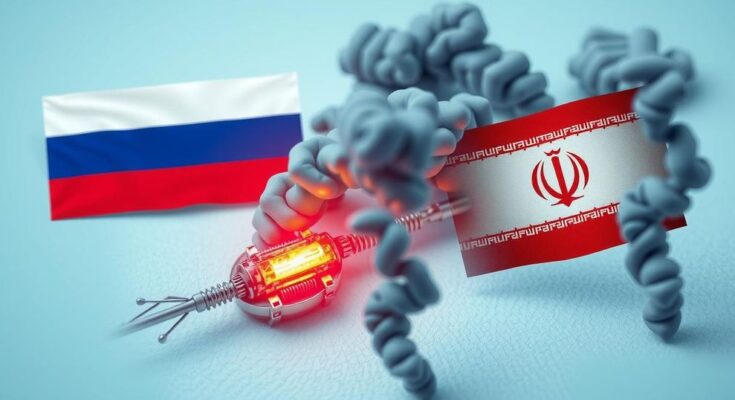In an interview, US Defense Secretary Lloyd Austin challenged the perception of Russia’s military dominance, citing logistical issues and reliance on North Korea and Iran for support. He noted substantial troop losses and the geopolitical costs to Russia’s influence, emphasizing the Biden administration’s successful efforts to aid Ukraine’s defense.
US Defense Secretary Lloyd Austin has addressed the prevailing narrative surrounding Russia’s military capabilities in its ongoing conflict in Ukraine. During an interview with Bloomberg News in Ramstein, Germany, he stated, “There’s a thought that Russia has the ultimate hand here and it has every advantage. It has some advantages, but it doesn’t completely dominate this equation here.” Austin cautioned that although Russia may gain short-term benefits, such actions would incur long-term costs.
As the United States approaches a change in leadership, Austin’s commentary gains significance, especially with President-elect Donald Trump indicating potential alterations to U.S. policy regarding Ukraine. The remarks emerge as Russia increasingly seeks aid from countries such as North Korea and Iran, noted Austin, revealing the Kremlin’s reliance on external support for its military operations. He observed that they are requesting assistance in the form of weapons, munitions, and personnel.
Moreover, Austin underscored the logistical difficulties that Russia would encounter in its attempts to maintain control over the territories it occupies. He asserted, “Russia will have to invest a lot of land forces to hold it,” indicating the considerable long-term strategic implications associated with territorial occupation. Defending the Biden administration’s approach to Ukraine, he asserted, “What it did was it helped Ukraine survive, it helped Ukraine defend its sovereign territory.”
Austin highlighted the substantial impact of the conflict on Russian military forces, citing a staggering toll of approximately 700,000 troops killed and wounded, a figure he characterized as “beyond imagination three years ago.” He further commented on the geopolitical ramifications of Russia’s military engagements, noting the country’s decreased ability to exert influence in other regions, including Syria and Africa, as a result of its entrenchment in Ukraine. This overextension, according to Austin, has significantly constrained President Putin’s ability to project power in these vital areas.
The discussion surrounding Russia’s military operations in Ukraine has intensified, particularly regarding its reliance on external powers as its military efforts face increasing challenges. As the circumstances evolve with a leadership transition in the United States, assessments of Russia’s strategic position have become paramount. Secretary Austin’s insights reveal the complexities of military logistics and the geopolitical strain imposed by Russia’s engagements, thereby contextualizing the ongoing conflict within broader international dynamics.
In summary, Secretary Austin’s remarks elucidate the nuanced challenges that Russia faces in maintaining military operations in Ukraine, alongside its need for external support from nations like North Korea and Iran. The significant loss of personnel underscores the severe ramifications of the conflict, thereby implicating broader geopolitical consequences. The U.S. administration’s strategy appears focused on bolstering Ukraine’s resilience while mitigating Russia’s capacity to extend its influence worldwide.
Original Source: euromaidanpress.com




